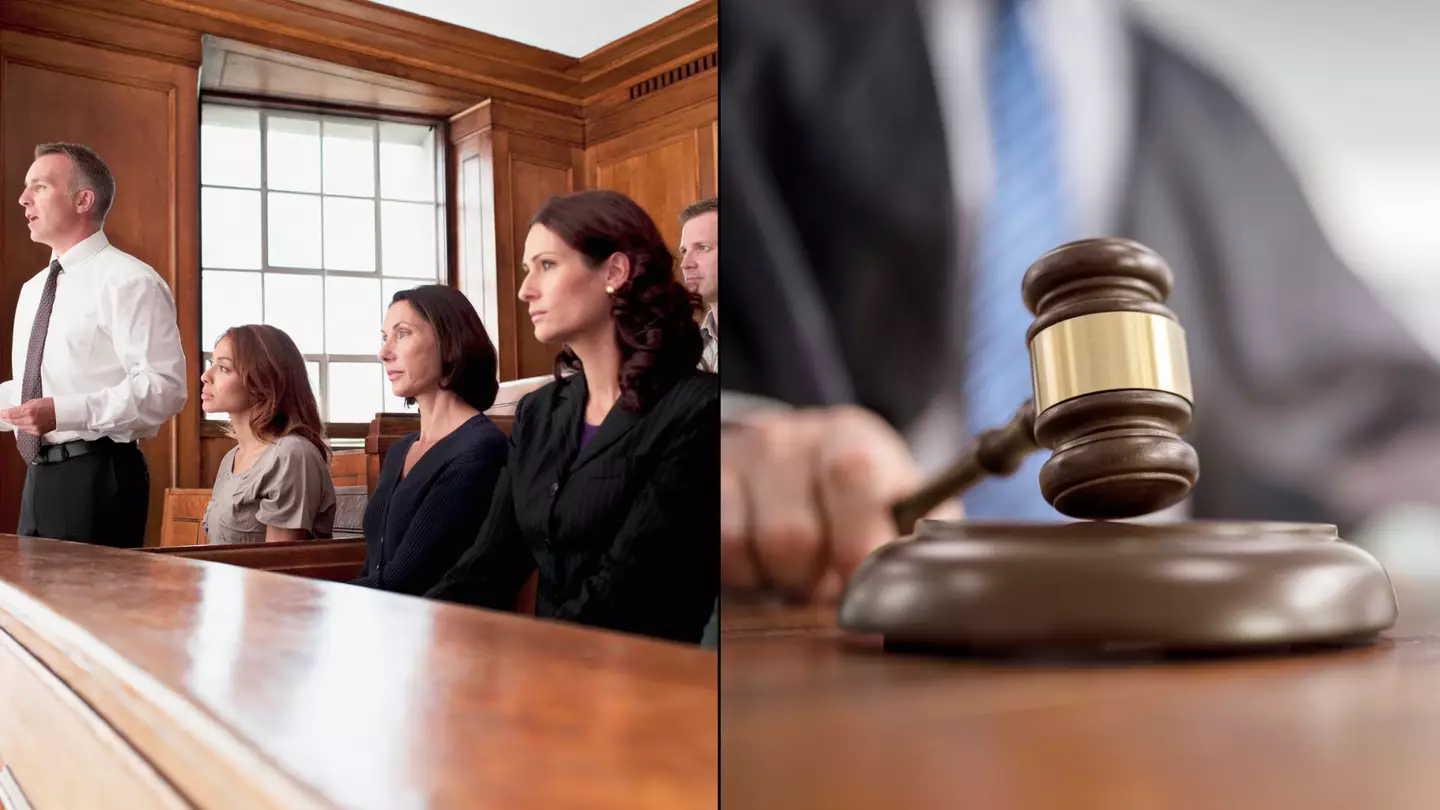
One day you might end up getting a rather hefty and official-looking package through the post which tells you that you've been picked for jury service.
I write from experience, dear reader, as I have in fact been called for this very experience though in the time I never got to sit on an actual jury.
My time on jury service consisted of several days of sitting in what was essentially an incredibly large dentist's waiting room and being called for trials before being told that someone had pleaded guilty at the last moment, which was apparently known as 'cracking'.
On several days I was told I didn't even need to be in, and treated myself to jaunts to the National Football Museum, Royal Armouries and the National Railway Museum instead, all of which I can recommend as splendid experiences.
Advert
Anyhow, one day you might be chosen for jury service, and when that happens you'll have to do rather a lot.

How they choose you
It's pretty simple actually, people who are called up for jury duty are picked at random from the electoral register, so if you're on that then your name could come up.
Your jury summons will tell you for what period of time you've been called and to which court you're supposed to go to, and you'll also get the lowdown on what you can and can't do.
You must be between 18 and 75 on the date that your jury service starts, and be registered to vote in the UK.
You'll also have to have lived in the UK for at least five years after birthday number 13.
If you're on bail, have either been in prison or subject to a community order in the last 10 years, ever been given a prison sentence of five or more years, are in hospital, do not have mental capacity or are under a community treatment order for mental health then you are not qualified to be on a jury.
All of this information will be up to you to figure out and fill out in the forms you're sent, which brings us onto the next point...

Return to sender
You'll have to fill out the forms and send them back within seven days of receiving them, and the Coroners Service Manager will then decide whether you'll be joining a jury, have your jury service deferred until later or if you could be excused altogether.
You should get another letter from them within 10 days of sending off a response, while you may be called to discuss certain bits of information you put on your forms.
If you just don't reply to jury summons then there are legal powers to have the police bring you to court and fine you.
Should you have been away or on holiday when you received the jury summons and have missed the seven day window then you just need to send it back as soon as possible.

Chances of getting picked
According to CPD Online College, your chance of being called up to do jury service in your lifetime is about four in 10.
With tens of millions of people on the electoral register and hundreds of thousands of people chosen for jury service each year it's probably not going to be you in any given year, but as the decades roll by there's a good chance that you will get picked for jury service.
In general you'll be called for a period of 10 working days, so basically you'll be on jury duty for two weeks or thereabouts.
Depending on whether you're called for a trial or not you might be told your service is over early, or you might be on a jury for longer than expected depending how long your trial goes on for.

Do I have to do it when they say?
Jury service is going to take up your time, and you may simply not be able to do it.
If you get your summons and it's not a convenient time then you'd better hope your reason lines up with the list of reasons on offer for getting out of things.
You can switch your summons to another date within 12 months if you can't make your jury service as you're having an operation, work won't give you the time off, you're going to be sitting an exam, you have a holiday booked which clashes with the summons or you're a new parent.
Your workplace has to give you the time off work for jury service, though employers are allowed to ask you to defer if you being away would significantly impact their operations.
This can only be done once every 12 months.
If you want to change your summons then you'll need to explain it when filling out your forms, and you can suggest up to three possible alternative dates in the next year which might work for you.

"May I be excused?"
It's also possible to be excused altogether if you can't do jury service within the next 12 months if you're a new parent who won't be available at any point during that time, you're a full time carer of someone with an illness or disability, or you yourself have a serious illness or disability that'd prevent you from jury service.
People who've also done jury service within the last two years can also be excused, though this doesn't stop you from being called in the future.
You may be asked to present proof of your reason for being excused, and in the case of a medical exemption you will likely have to provide a doctor's note confirming that you are unwell enough to be exempt.

How much you get paid
OK, so you don't specifically get paid to do jury service per se, but you can be compensated for money lost because you're away.
First things first you'll need to discuss with your employer whether you'd be paid while away, as they legally don't have to but many do.
If you're not going to be paid your usual salary then you've got to file a loss of earnings form, which an employer might then decide to top up.
For each day you're at the court you can claim the cost of travel to and from it, as well as up to £5.71 for food and drink.
The government has a full breakdown of how much you can claim on travel costs.
You can also claim up to £64.95 per day for loss of earnings if you spend over four hours at the court for the first 10 days, and £32.47 a day if you're at court for four hours or less in the day.
After 10 days these amounts increase, so spending over four hours at court will mean you can claim up to £129.91 a day, and £64.95 a day for four hours or fewer.
If you don't have an employer then you can still file for loss of earnings, and to use myself as an example here I was working as a freelancer when I was called for my jury duty and could file for loss of earnings.